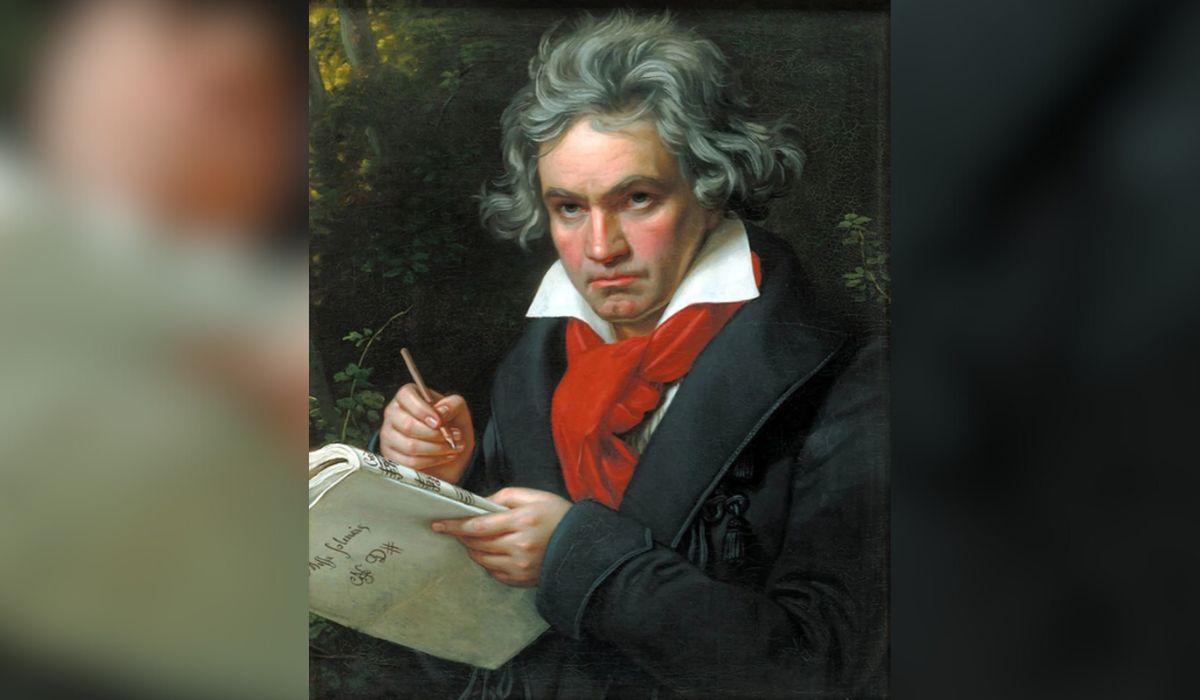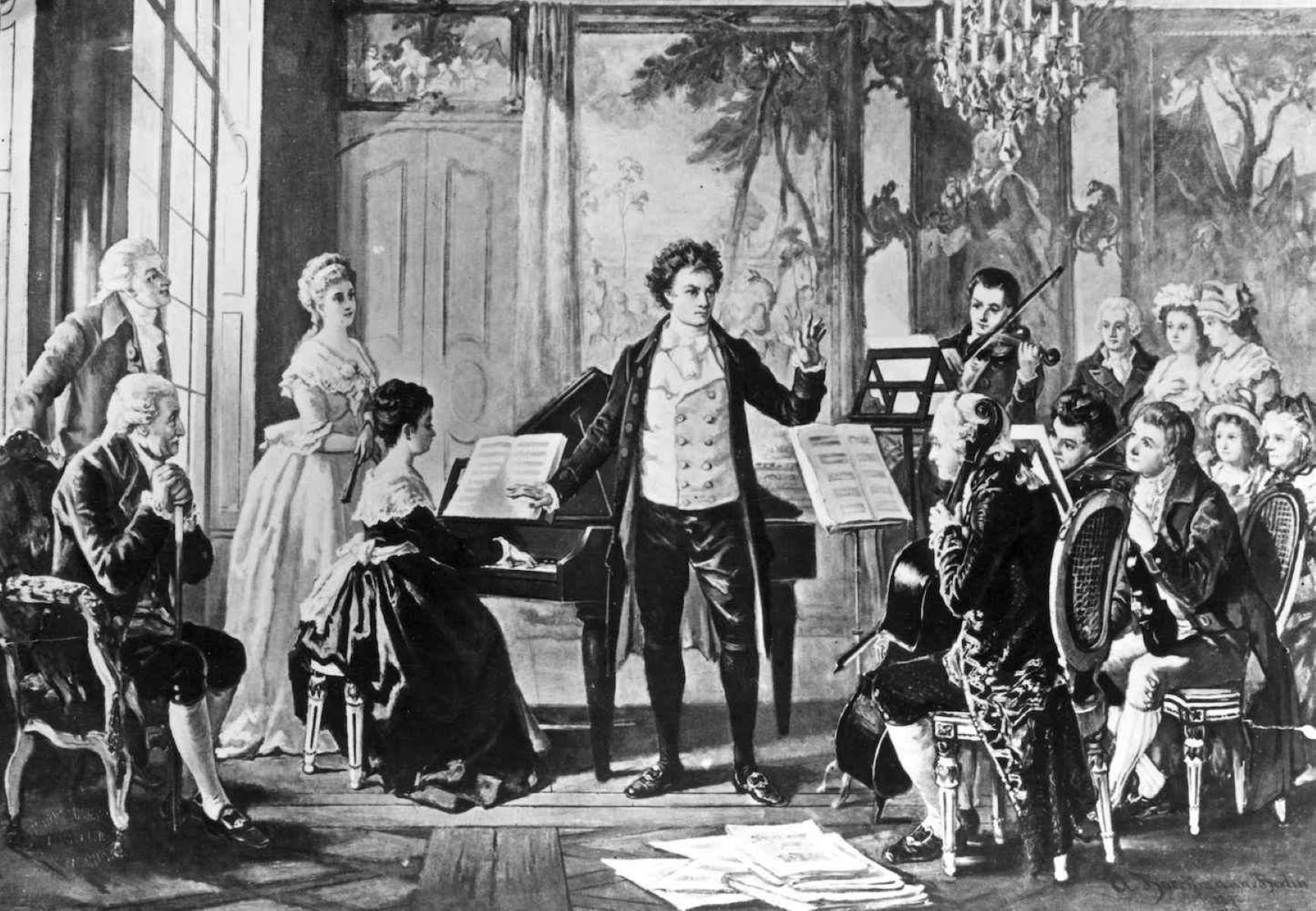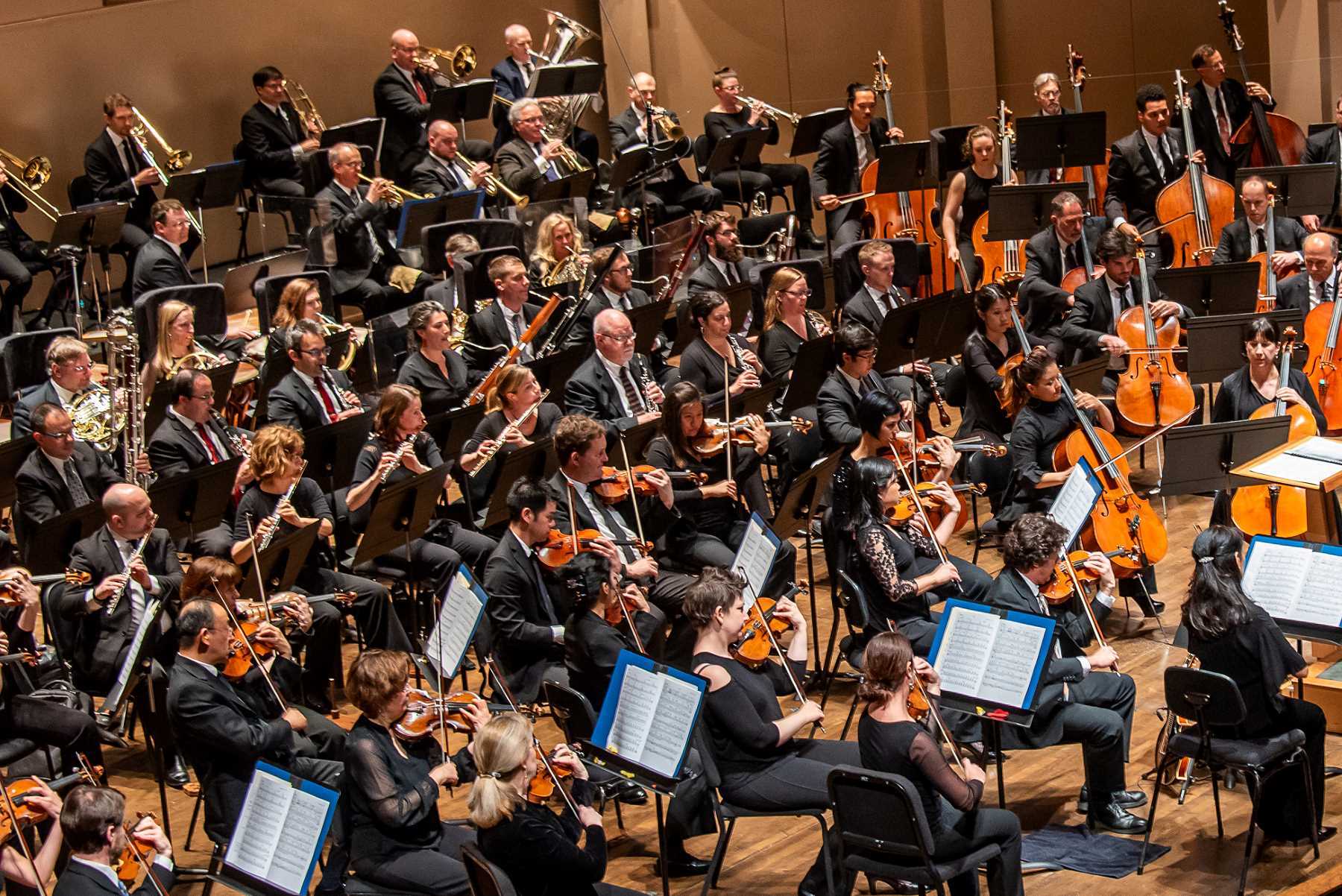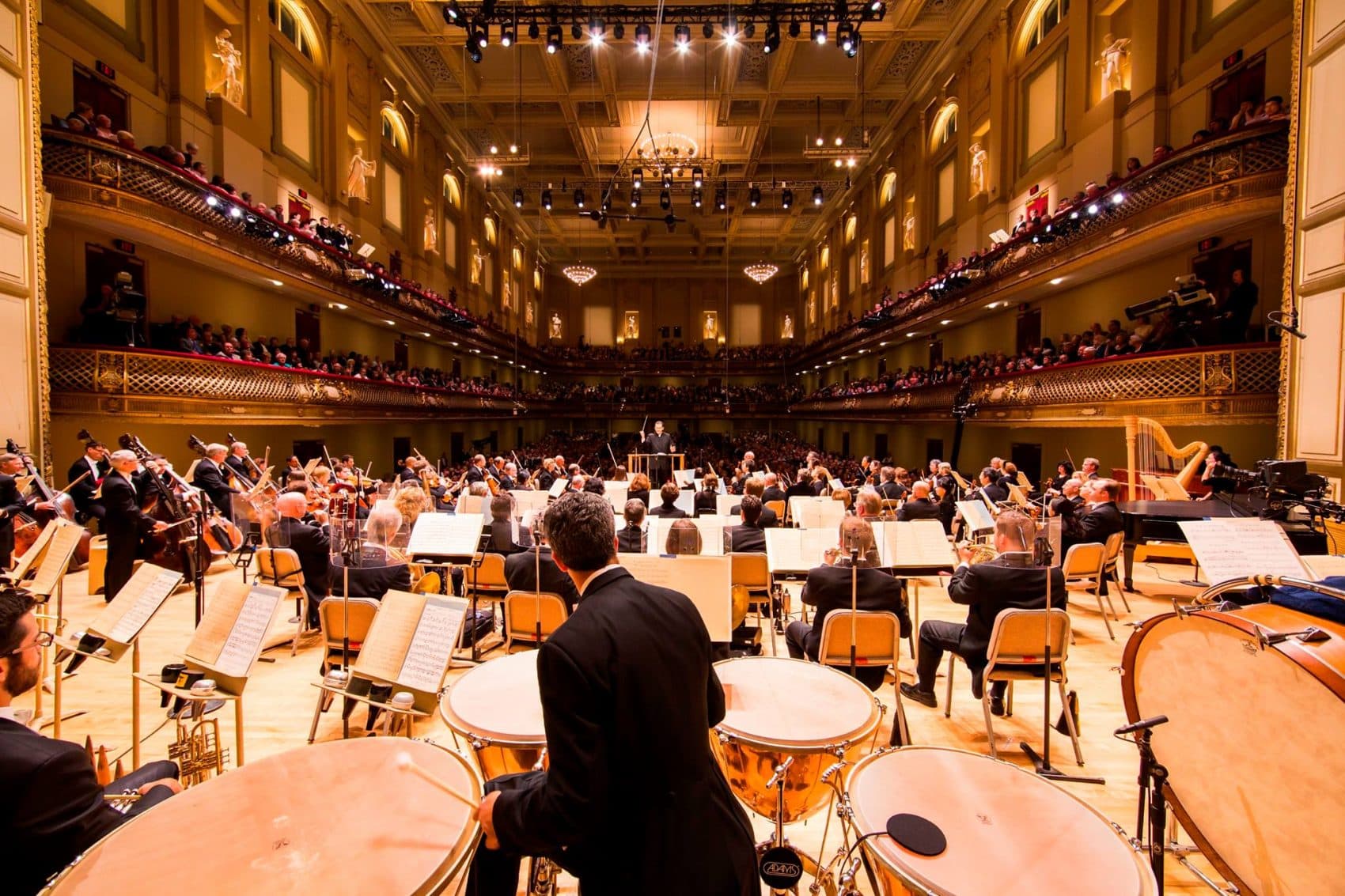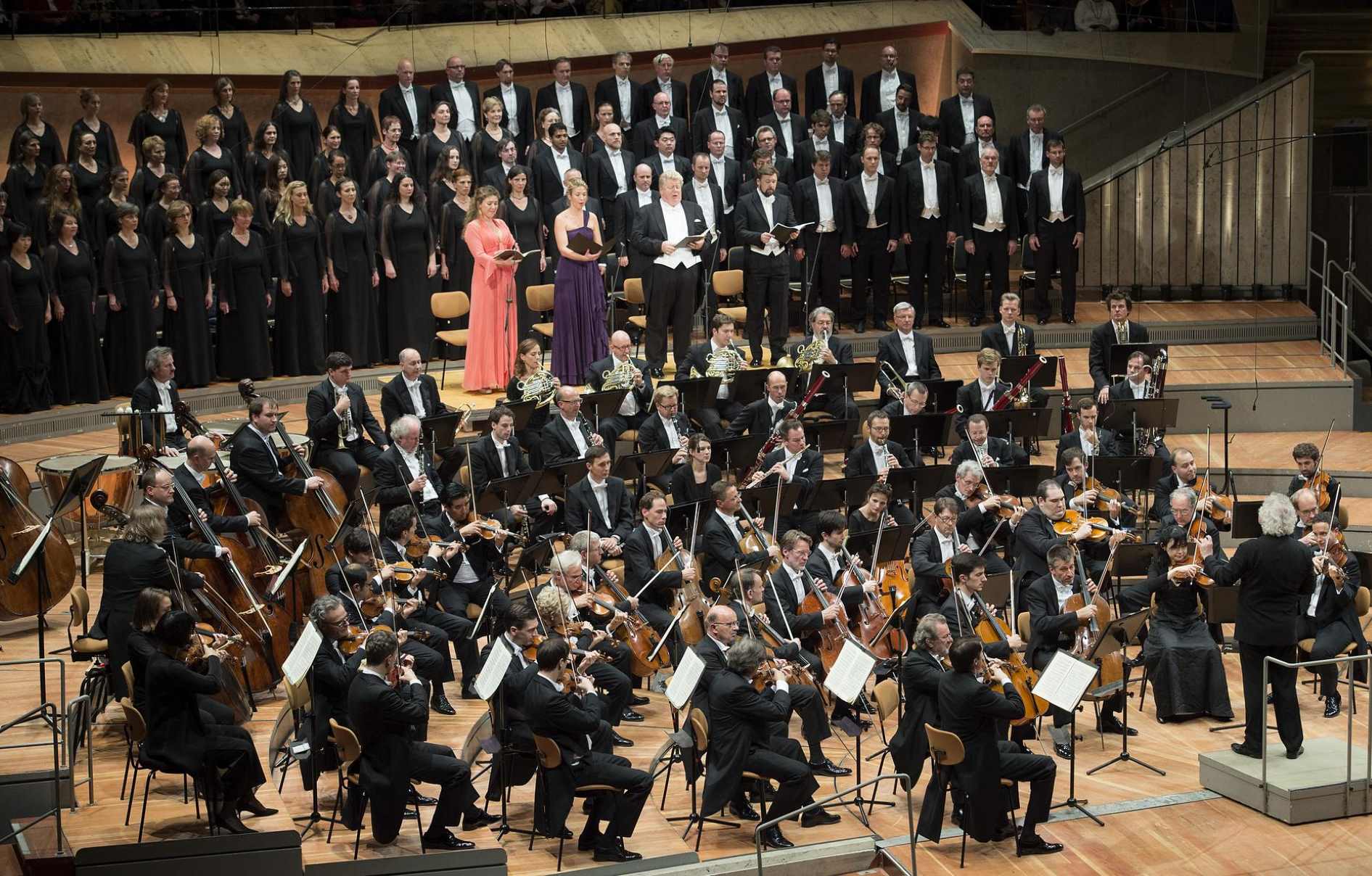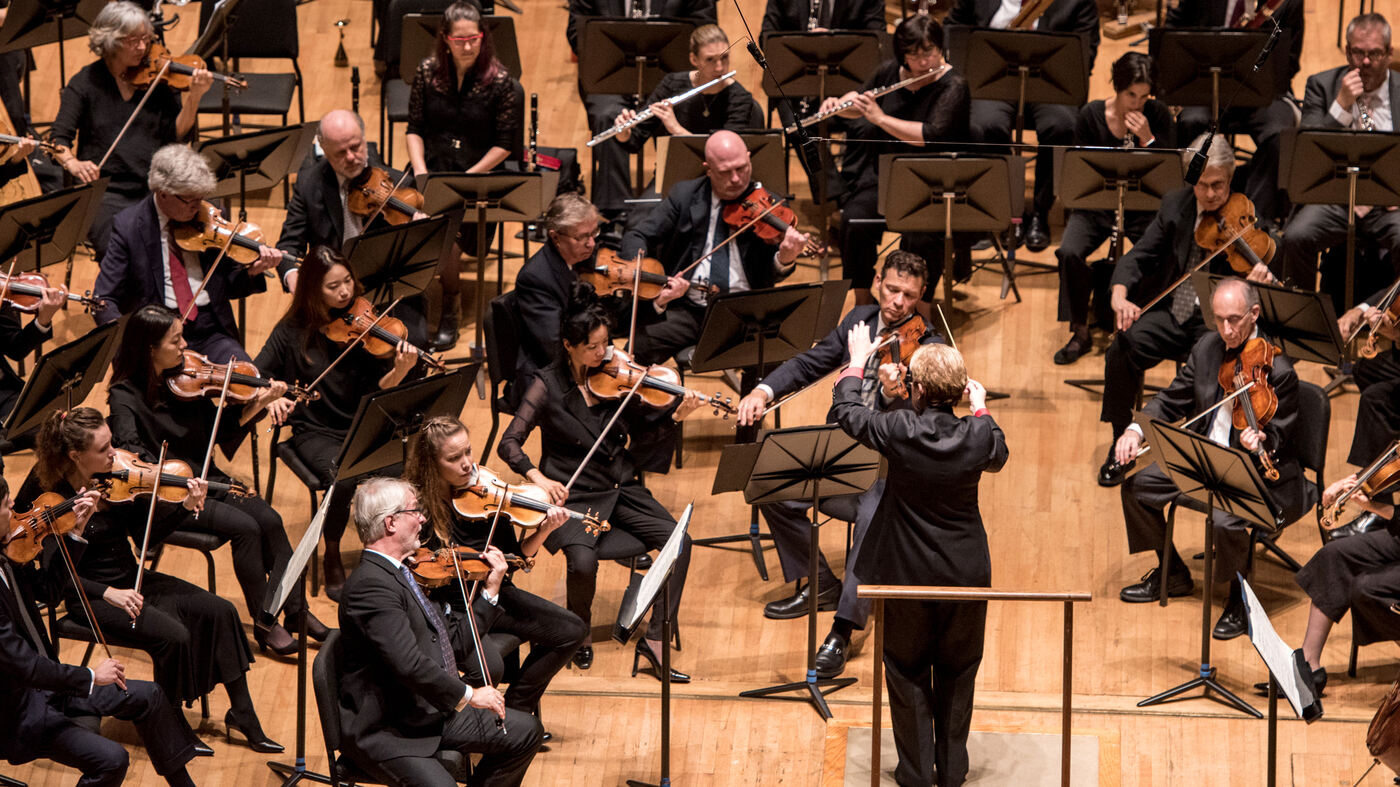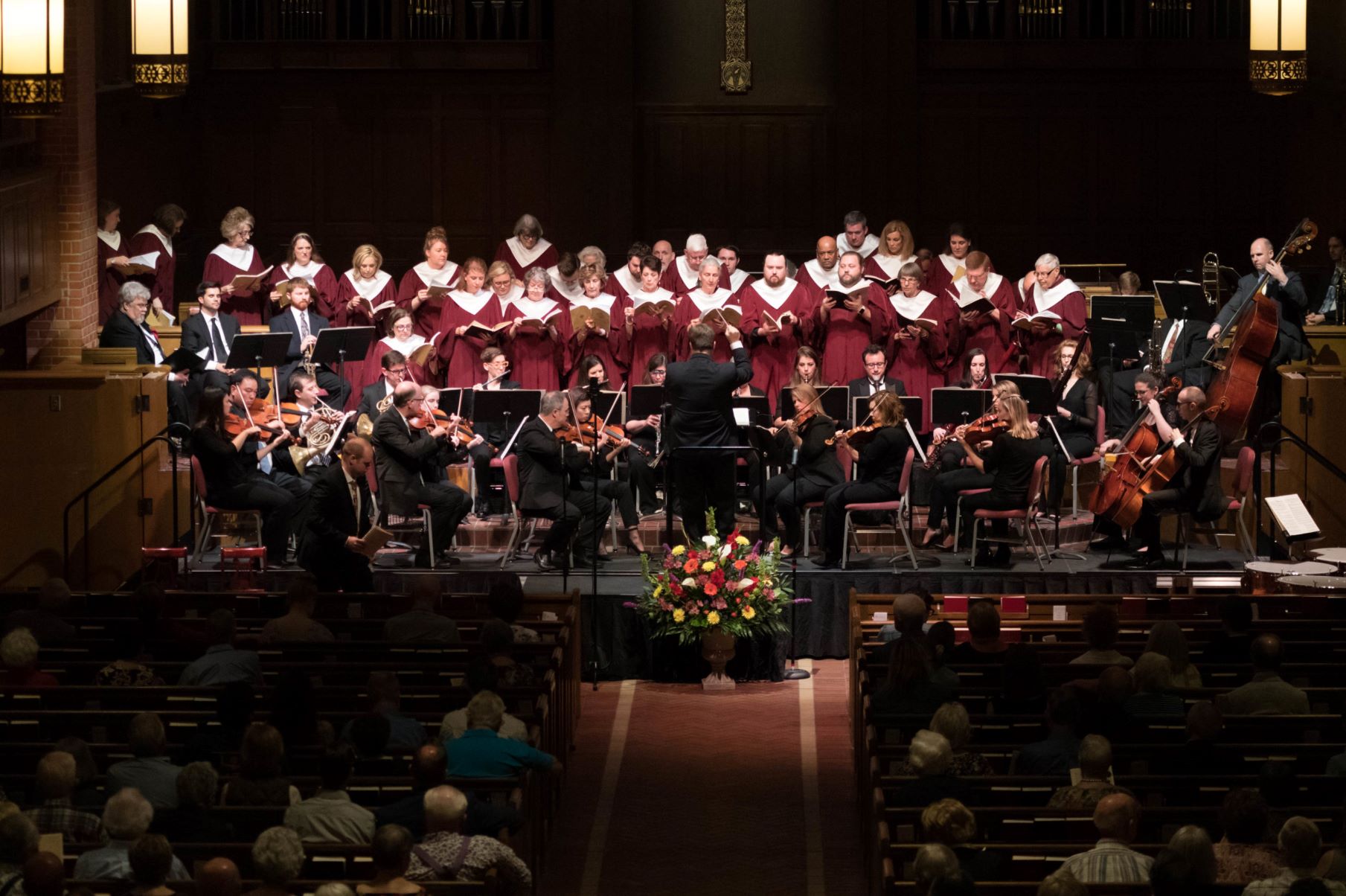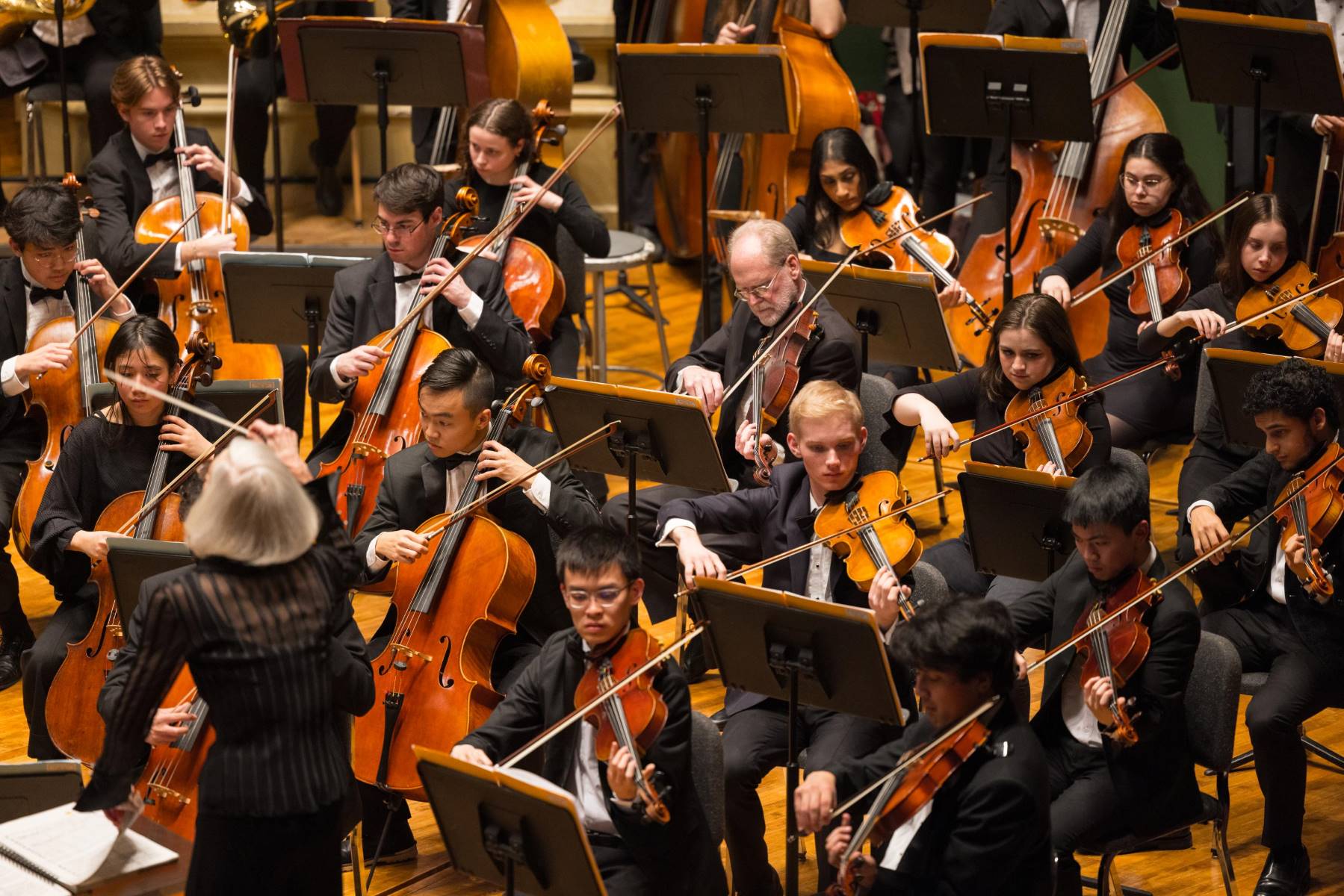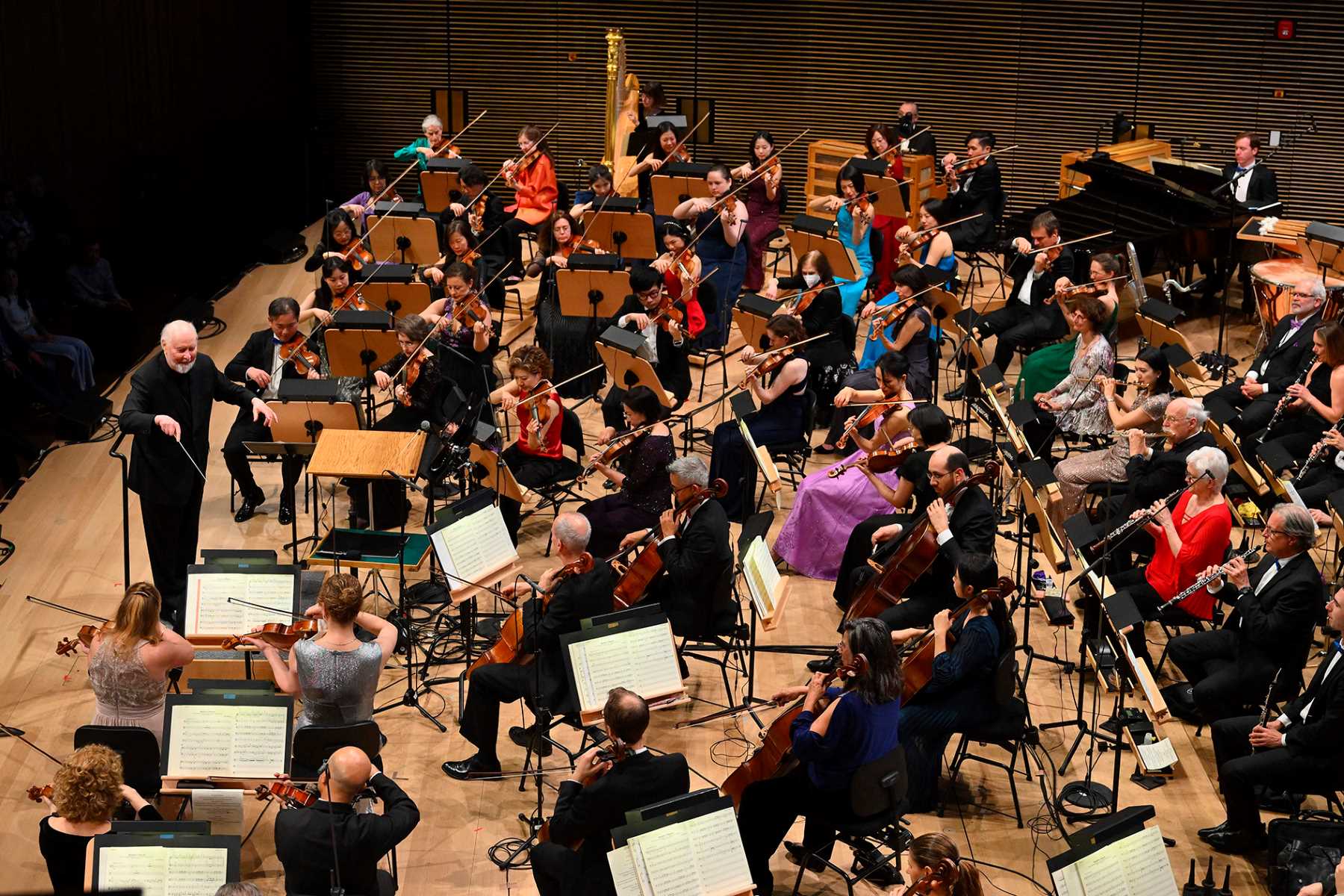Home>Genres>Symphony>What Symphony Did Beethoven Dedicated To Napoleon
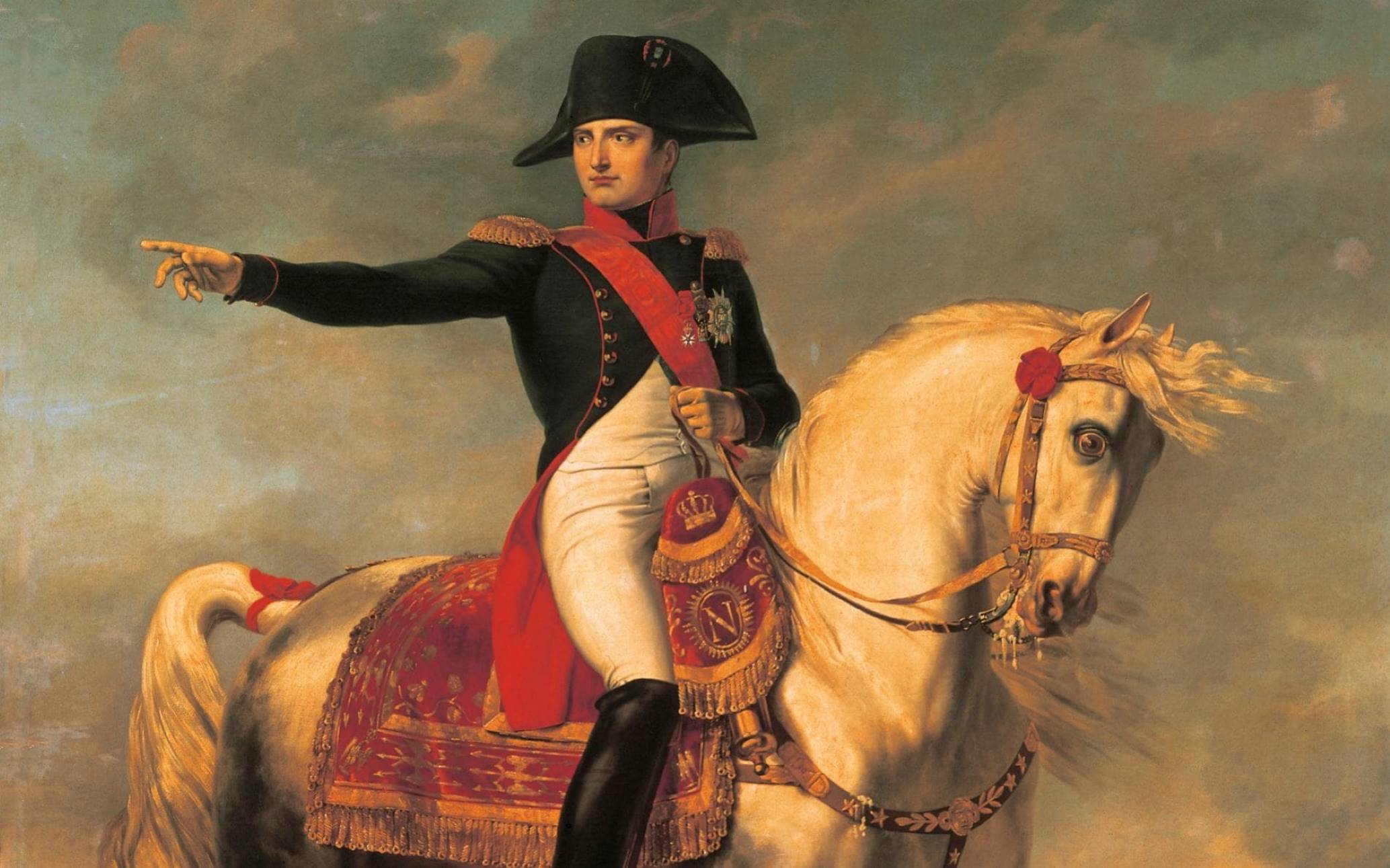

Symphony
What Symphony Did Beethoven Dedicated To Napoleon
Published: January 16, 2024
Discover Beethoven's dedication to Napoleon with his iconic Symphony. Unveil the powerful compositions that defined a historical era.
(Many of the links in this article redirect to a specific reviewed product. Your purchase of these products through affiliate links helps to generate commission for AudioLover.com, at no extra cost. Learn more)
Table of Contents
Introduction
Ludwig van Beethoven is regarded as one of the most influential composers in the history of classical music. His compositions have left an indelible mark on the musical landscape, and his symphonies are celebrated for their depth, complexity, and emotional range. One of Beethoven’s most famous symphonies, Symphony No. 3, holds a special significance in the composer’s life and is known for its dedication to Napoleon Bonaparte, the French military leader and political figure.
Beethoven lived during a time of immense political and social change. The French Revolution had swept across Europe, challenging the existing monarchies and ushering in a new era of revolutionary ideals. Napoleon emerged as a central figure in this tumultuous period, and his ambitious military campaigns and political transformations captivated Beethoven’s imagination.
Beethoven admired Napoleon for his revolutionary ideas of equality and freedom, viewing him as a symbol of hope and progress. In the early stages of the composition of Symphony No. 3, Beethoven conceived it as a musical tribute to Napoleon, a tribute that would honor the ideals of the French Revolution and convey a sense of grandeur and heroic aspiration. However, the story takes an unexpected turn.
This dedication to Napoleon is a testament to Beethoven’s own fervent belief in the transformative power of music and its ability to inspire change. Symphony No. 3 stands as a monument to the fusion of music and politics, showcasing Beethoven’s musical genius and his passionate commitment to the ideals of the French Revolution.
Beethoven’s admiration for Napoleon
Ludwig van Beethoven’s admiration for Napoleon Bonaparte can be traced back to the early years of the 19th century. At this time, Napoleon had risen to power in France and was making his mark as a military leader and political visionary. Beethoven, like many others of his time, was enthralled by Napoleon’s charismatic leadership and his revolutionary ideas.
Beethoven saw in Napoleon a champion of the ideals of the French Revolution – liberty, equality, and fraternity. He believed that Napoleon’s rise to power would bring about a new era of freedom and social justice. The composer saw a kindred spirit in Napoleon, a man who was willing to challenge the established order and fight for the rights of the common people.
This admiration is evident in Beethoven’s Symphony No. 3. The symphony was originally intended to be a musical homage to Napoleon, a celebration of his achievements and a reflection of the composer’s admiration for his revolutionary spirit. Beethoven poured his emotions, hopes, and dreams into the composition, infusing it with a sense of grandeur and heroic aspirations.
However, Beethoven’s admiration for Napoleon was short-lived. As Napoleon’s power grew, so did his ambitions. He declared himself Emperor of France in 1804, betraying the ideals of the French Revolution that had originally inspired Beethoven. This act of self-proclamation deeply disappointed and outraged the composer, who saw it as a betrayal of the principles of equality and justice.
This disillusionment with Napoleon is captured in Beethoven’s iconic “Heiligenstadt Testament,” a letter he wrote to his brothers in 1802. In this letter, Beethoven expresses his frustration with his deteriorating hearing and his despair over the loss of his musical abilities. He also reflects on Napoleon’s self-proclamation as emperor, calling him a “tyrant” and stating that he had “torn the halo from Beethoven’s head.” This significant moment marked a turning point in Beethoven’s relationship with Napoleon.
The composer’s initial admiration for Napoleon was replaced by a profound sense of betrayal and disappointment. Beethoven, fiercely committed to the ideals of the French Revolution, could not reconcile his beliefs with Napoleon’s actions. The dedication of Symphony No. 3 to Napoleon would undergo a significant change as Beethoven’s perspective on the French leader evolved.
Beethoven’s Symphony dedicated to Napoleon
When Beethoven began composing Symphony No. 3, it was originally titled “Bonaparte.” The dedication to Napoleon was a testament to Beethoven’s admiration for the French leader and his belief in the ideals of the French Revolution. The symphony was meant to depict the greatness and heroic qualities of Napoleon, capturing the spirit of revolution and progress.
Beethoven poured his heart and soul into the composition, infusing the symphony with powerful emotions and dramatic musical motifs. The symphony is known for its boldness, innovative structure, and its exploration of human struggle and ultimate triumph. It is a testament to Beethoven’s genius and his ability to harness the power of music to convey profound messages.
However, as Beethoven was completing the symphony, news reached him that Napoleon had declared himself Emperor of France. This act of self-proclamation shattered Beethoven’s admiration and faith in Napoleon. Suddenly, the symphony dedicated to a revolutionary leader became a symbol of disappointment and betrayal.
In a fit of rage, Beethoven tore the title page of the score, crossing out Napoleon’s name violently. The dedication was erased, and the symphony became untitled. Beethoven was no longer willing to give his artistic masterpiece the name of someone who had abandoned the very principles he had once championed.
Yet, the symphony itself remained unchanged. It still carried the passion, intensity, and revolutionary spirit that Beethoven had poured into it. Its music spoke volumes, transcending the ephemeral nature of political figures and capturing the timeless essence of human struggle and triumph.
Despite the change in dedication, Symphony No. 3 continued to captivate audiences and hold a special place in the canon of classical music. Its impact extended far beyond its original association with Napoleon. The symphony came to represent the eternal struggle for freedom, the indomitable human spirit, and the power of music to transcend political circumstances.
Eventually, the symphony came to be known as the “Eroica” Symphony, a title that reflects its heroic content and grandeur. While the original dedication to Napoleon may have been erased, the spirit of revolution and the indomitable human spirit remain at the core of this monumental piece of music.
The revolutionary character of the Symphony
Beethoven’s Symphony No. 3, often referred to as the “Eroica” Symphony, embodies the revolutionary spirit of its time in both its composition and its message. The symphony shattered the conventions of classical music and pushed the boundaries of orchestral composition, marking a turning point in the history of symphonic music.
One of the key revolutionary elements of the Symphony is its sheer scale and grandeur. Beethoven expanded the traditional symphonic form, making Symphony No. 3 significantly longer and more expansive than its predecessors. With four movements that span the breadth of human emotion, the symphony allows for a deeper exploration of themes and ideas.
Moreover, the Symphony showcases Beethoven’s innovative approach to musical structure and his mastery of musical language. It challenges the traditional tonal boundaries, employing bold harmonic progressions and unexpected tonal shifts that create a sense of tension and release. Beethoven also incorporates unconventional musical techniques, contrasting dynamics, and complex polyphonic textures, all of which contribute to the symphony’s revolutionary character.
But perhaps the most revolutionary aspect of Symphony No. 3 lies in its emotional depth and expressive power. The symphony conveys a range of emotions, from moments of triumph and heroism to moments of introspection and vulnerability. Beethoven’s intricate orchestration, dynamic contrasts, and the use of recurring themes throughout the symphony evoke a sense of drama and intensity, drawing the listener into a profound musical journey.
The Symphony also carries a powerful message of hope and the pursuit of ideals. It embodies the spirit of the French Revolution and Beethoven’s initial admiration for Napoleon as a symbol of revolutionary change and progress. Despite the change in dedication, Symphony No. 3 serves as a reminder of the enduring aspiration for freedom, equality, and justice.
Through its exploration of revolutionary themes and its bold musical language, Beethoven’s Symphony No. 3 challenged the status quo of its time and paved the way for the development of symphonic music in the years to come. It remains a testament to the power of music to inspire and provoke thought, reflecting Beethoven’s unwavering commitment to artistic expression and the pursuit of human ideals.
Napoleon’s fall from grace and Beethoven’s response
The fall from grace of Napoleon Bonaparte marked a pivotal moment in history and profoundly impacted Beethoven’s perception of the French leader. Napoleon’s lust for power and disregard for the principles of the French Revolution deeply disappointed and angered the composer, leading to a drastic shift in his response to Napoleon and Symphony No. 3.
Napoleon’s military campaigns and political maneuvers had initially captivated Beethoven’s imagination, inspiring him to dedicate Symphony No. 3 to the French leader. However, as Napoleon declared himself Emperor of France, he betrayed the very ideals of liberty and equality that Beethoven held dear. This act shattered Beethoven’s admiration and faith in Napoleon as a revolutionary figure.
Deeply disillusioned, Beethoven felt a sense of personal betrayal. The composer viewed Napoleon’s self-proclamation as a tyrannical act that undermined the values of the French Revolution and the hopes of those who had fought for freedom and social justice. This betrayal ignited a fire of anger and frustration within Beethoven, fueling his response to Napoleon and Symphony No. 3.
In a fit of rage and symbolic rejection, Beethoven tore the dedication page of Symphony No. 3, crossing out Napoleon’s name with forceful strokes. This act of defiance demonstrated Beethoven’s refusal to associate his artistic masterpiece with someone who had abandoned the principles and aspirations of the French Revolution.
However, while Beethoven’s fury and disappointment were evident, his response was not limited to sheer anger. It was through his music that Beethoven found a means to express his profound criticism of Napoleon and the preservation of his own ideals.
The subsequent revisions made to Symphony No. 3 reflected Beethoven’s response to Napoleon’s fall from grace. The symphony retained its revolutionary spirit and powerful emotions, but the title and dedication were revised. The symphony came to be known as the “Eroica” Symphony, a title that encompassed the heroic ideals and struggle for freedom that transcended Napoleon’s temporary reign.
Beethoven’s response to Napoleon’s fall was not only a personal one but also a reflection of the larger disillusionment felt by those who had once believed in the transformative power of revolution. Symphony No. 3 served as a vehicle for Beethoven to voice his fierce opposition to tyranny and his unwavering commitment to the values of freedom and equality.
Despite the change in response and dedication, Symphony No. 3 stands as a testament to Beethoven’s resilience and artistic integrity. It continues to resonate with audiences, not only for its musical brilliance but also for its underlying message of the indomitable human spirit and the enduring pursuit of noble ideals, even in the face of disappointment and betrayal.
The revised dedication and title of the Symphony
Following Napoleon’s fall from grace and Beethoven’s response to the disillusionment, Symphony No. 3 underwent a significant change in its dedication and title. The initial dedication to Napoleon was torn and crossed out, a symbolic rejection of the French leader’s abandonment of the revolutionary ideals. In its revised form, the symphony came to be known as the “Eroica” Symphony.
The term “Eroica” is derived from the Italian word for “heroic.” This revised title reflects the profound shift in Beethoven’s perspective and his decision to honor a more timeless and universal concept rather than aligning the symphony with a specific political figure. The revised dedication and title embody the heroic struggle for freedom and the indomitable spirit of humanity.
The “Eroica” Symphony resonates with the heroic ideals that transcended the disappointment caused by Napoleon’s actions. It represents a celebration of the strength and resilience of the human spirit in the face of adversity. Beethoven’s decision to revise the dedication and title encapsulates his commitment to upholding the values of liberty, equality, and justice that were at the core of the French Revolution.
Despite the change in dedication, the essence and emotion of the symphony remain intact. It is a magnificent work of art that still evokes a range of emotions, from triumph to introspection. The powerful music reflects a timeless message of hope, courage, and the pursuit of noble ideals.
The revised dedication and title of the Symphony bear witness to Beethoven’s artistic integrity and his refusal to let political disappointments diminish the power and universality of his work. The “Eroica” Symphony serves as a reminder that music transcends individual figures and political circumstances, capturing the essence of the human experience and inspiring generations of listeners.
With its revised dedication and title, Symphony No. 3 invites us to reflect on the broader themes of heroism and the enduring human spirit. It is a symphony dedicated to the triumph of the human will, the relentless pursuit of freedom, and the unwavering belief in the transformative power of music.
Conclusion
Beethoven’s Symphony No. 3, initially dedicated to Napoleon Bonaparte, tells a captivating story of admiration, disappointment, and artistic resilience. It exemplifies the transformative power of music and its ability to reflect the complexities of the human experience.
Beethoven’s initial admiration for Napoleon’s revolutionary spirit was shattered when Napoleon declared himself Emperor, betraying the ideals of the French Revolution. This act of self-proclamation ignited a fierce response from Beethoven, leading him to tear the dedication page of Symphony No. 3 and revise its title.
The symphony, known as the “Eroica,” embodies the universal concept of heroism, transcending the transient nature of political figures. It stands as a testament to the enduring human spirit and the unwavering pursuit of freedom and noble ideals.
Symphony No. 3 challenges the conventions of classical music with its innovative structure, bold harmonic progressions, and emotional depth. It captures the essence of the revolutionary spirit of its time, showcasing Beethoven’s artistic genius and his ability to convey powerful messages through music.
Despite the change in dedication, the symphony remains an iconic masterpiece that resonates with audiences worldwide. It serves as a reminder of the indomitable human spirit and the universal longing for freedom and justice.
Beethoven’s response to Napoleon’s fall from grace goes beyond mere anger; it manifests through his unwavering commitment to artistic integrity and the preservation of his own ideals. The revised dedication and title of Symphony No. 3 reflect a profound shift in perspective, symbolizing Beethoven’s refusal to let political disappointments diminish the power and universality of his music.
In conclusion, Beethoven’s Symphony No. 3 stands as a testament to the fusion of music and politics. It tells a story of admiration turned into disappointment and ultimately transformed into artistic triumph. The symphony’s revolutionary character and timeless message continue to inspire and resonate with audiences, reminding us of the enduring power of music to convey emotions, provoke thought, and ignite the spirit of change.

